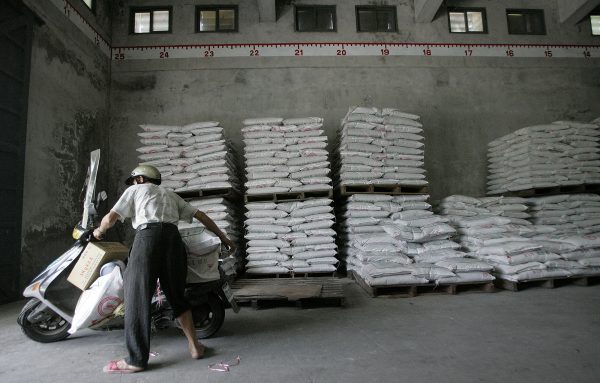Not since the League of Nations’ failed sanctions on Italy after the invasion of Ethiopia in 1935 has there been an attempt to isolate an economy as large — Russia is the world’s sixth biggest economy measured at purchasing power parity — or as integrated in the world economy.
Sanctions that target a clear and unpardonable violation of international law, such as a war of aggression, can be justified in dire circumstances, but they come with costs. In this case, one of the most significant is the disruption that sanctions have caused to world energy markets. As Russian trade is squeezed, oil and gas prices are skyrocketing. For Asia’s commodity exporters, this will represent an immediate windfall gain: for net energy importers like Sri Lanka — already in the grips of a major economic downturn — the soaring cost of fuel will be ruinous.
A confluence of factors has brought us to the precipice of disaster. The world price of fertiliser had been increasing worryingly even before the invasion: spot prices for urea surged from around US$245 per tonne at the end of 2020 to US$901 per tonne in 2021. The pandemic has strangled supply chains and led to surging freight prices.
In this context, the disruption to world food markets caused by the Ukraine war comes at the worst possible moment. Not only are both Russia and Ukraine themselves major food exporters, Russia in particular is a major producer of fertiliser, which it supplies to food producers in Asia and around the world and whose output is critically dependent on synthetic fertiliser inputs. A shock in the market for agricultural inputs will flow directly into global food markets.
As Peter Timmer argues in our lead article this week, ‘the world food economy is on the verge of another major crisis, perhaps as disruptive as the one in 2007–08. Important lessons were learned from the last food crisis, and avoiding those mistakes will be critical to keeping the region’s food economies reasonably stable this time. How the developing countries of Asia will fare as food supplies tighten is a special interest to Australia’.
An important part of the solution, as Timmer argues, is not to panic. There are certainly major challenges in world food markets in the short term, but there are as yet no food shortages. There’s plenty of food in stock to go around. As we learned during the early days of the pandemic, a belief in a future shortage is likely to be a self-fulfilling prophecy, as people hoard toilet paper or food staples.
As bankers facing runs on their banks have learned the hard way, reassuring the public early is key: once a panic begins, it becomes much harder to stop. As Timmer suggests: ‘A pledge from these exporters to allocate supplies to customers most in need would eliminate importers’ fears, build trust, and stabilise the world grain economy’.
Without an immediate halt to hostilities in eastern Europe and a reintegration of Russia into the global economy, economic pain well beyond Ukraine’s borders is unavoidable. What will make things worse, however, is a retreat into national autarky. Indonesia’s export ban on palm oil and similar moves in major wheat exporting countries in Europe are an ominous sign of a lack of global leadership.
Global trade in food has made the world richer, and food supplies more secure as seasonal ups and downs and other shocks are more readily absorbed in international markets, but the unspoken foundation of food security is an open global trading order that guarantees that food importers can access the supplies they need. Offer’s magisterial history of the role of grain imports in creating the conditions for the First World War is a stark reminder of how a collapse in trust in free trade ignites more serious conflagrations.
In Asia, where some of the poorest countries are also net food importers (Laos, Timor-Leste and Nepal among them), the urgent need is for leadership to keep markets open and preventing an unnecessary panic is paramount. As Timmer notes, ASEAN has played a vital role in the past decade: it needs to step up now, too.
The risks to global food trade from autarkic policy responses to the shock of the invasion of Ukraine are just one important element that threatens confidence and trust in trade among food-import-dependent economies in Asia that include Japan, China, South Korea and Taiwan. While oil and gas prices have plateaued after a dramatic initial hike, there’s worse to come if Europe is prepared to totally turn off Russian gas supplies. Diversion of Russian supplies to alternative major markets like China is neither logistically nor politically feasible.
Were the conflict in Ukraine to end tomorrow, and that is most unlikely, the implications of these developments for the way in which nations think about integration into global markets are huge. The United States has justifiably led the world in deploying the most comprehensive trade and economic sanctions ever against the Russian state. That example, without the most careful and explicitly agreed delimitations however, threatens a global retreat from trade and unqualified blessing for economic coercion on whatever pretext that could bring down the liberal economic order upon which we have for decades relied, with devastating effects on global welfare and political order.
The EAF Editorial Board is located in the Crawford School of Public Policy, College of Asia and the Pacific, The Australian National University.

